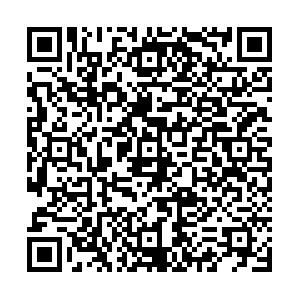Review and Reflection on the Design of Unit Teaching from the Last Decade
-
摘要: 我国素养导向的教育背景下,单元教学成为教学设计的焦点。通过文献收集与整理,从单元设计的界定、理论基础、单元设计与学科之间的关系、单元目标确定、学习活动设计、学习评价设计六大维度深入分析,研究表明,单元设计以学科内整合为主,缺乏系统的理论框架和扎实的实施工具。为推进单元设计,首先拓宽单元设计的视野,不仅要考虑单元内整合也要考虑单元之间的整合,不仅要考虑学科内整合也要考虑超越学科的整合;其次研发单元设计的工具,即设计统整性单元目标与大概念、问题化单元目标、情境化与生活化单元核心学习活动、开发统整性单元评价任务;再次加强单元设计的理论建设,即拓宽单元设计的知识基础、梳理单元设计的模式、规范单元设计的术语。Abstract: Under the background of literacy-oriented education in China, unit teaching has become the focus of teaching design. Through literature collection and review, this paper analyzes the six major dimensions of unit design, including the definition of unit design, its theoretical foundation, the relationship between unit design and disciplines, the determination of unit objectives, the design of learning activities and the design of learning assessment. The research shows that unit design is mainly based on the integration within disciplines, and lacks systematic theoretical framework and solid implementation tools. In order to promote unit design, it is necessary to broaden the horizon of unit design, not only by considering integration within the units, but also integration between units; not only by considering integration within disciplines, but also integration beyond disciplines; secondly, it is necessary to research and develop tools for unit design, i. e., to design integrative unit objectives and broad concepts, problem-based unit objectives, contextualized and life-oriented unit core learning activities, and to develop integrated unit evaluation tasks. Finally, it is necessary to strengthen the theoretical development of unit design, i. e., to broaden the knowledge base of unit design, to collate the patterns of unit design, and to standardize the terminologies of unit design.
-
Key words:
- unit design /
- literature review /
- positioning /
- tool /
- theoretical development
-
[1] 中共中央, 国务院. 中共中央国务院关于全面深化新时代教师队伍建设改革的意见[J]. 人民教育, 2018(3-4):7-13. [2] 祝炎. 化学教师教育研究特征的微观探析[D]. 上海:华东师范大学, 2010:34. [3] 宋孝忠. 试论终身学习动力机制的构建[J]. 成人教育, 2010, 30(6):31-32. [4] 李林霞. "农远"促进农村中小学教师专业发展的理论与实践研究[D]. 沈阳:沈阳师范大学, 2008:13. [5] Robert Hauptman. Ethics and Librarianship[M]. Jefferson, NC:McFarland and Co., 1988:68. [6] 沙勇忠, 王怀诗. 信息伦理论纲[J]. 情报科学, 1998(6):492-497. [7] 李娟, 迟舒文. 智能时代的信息伦理研究[J]. 情报科学, 2018, 36(11):61-65. [8] 朱坤. 股市投资能力成熟度模型的分析与构建[D]. 成都:电子科技大学, 2009:2. [9] 王枬. 创新型教师培养与教师教育创新[J]. 国家教育行政学院学报, 2012(9):3-6. [10] 孙刚成. 新时代创新创业人才的基本特点与培养策略[J]. 教育与教学研究, 2019(11):122-125. [11] 孙刚成, 左晶晶. 21世纪国际工程教育研究的动态、热点与前沿——基于WOS期刊文献的可视化分析[J]. 大学教育科学, 2019(4):30-40. [12] 张妍. 国学教育对当代大学生人文素质的影响研究[D]. 西安:西安理工大学, 2014:14. [13] 孙刚成, 贺列列. 新时代教师队伍建设视域下的教师教学与扮演角色变革取向[J]. 教育与教学研究, 2019, 33(4):82-90. [14] [德] 第斯多惠. 德国教师培养指南[M]. 袁一安, 译. 北京:教育科学出版社, 1990:25. [15] 佘武, 胡晓霞. 浅议高师院校教育信息化工作[J]. 中国高教研究, 2004(5):71-72. [16] 王全旺, 刘光然, 詹青龙. 我国高级技工学校教师信息素养现状分析[J]. 职业教育研究, 2006(5):30-31. -

 点击查看大图
点击查看大图
计量
- 文章访问数: 1291
- HTML全文浏览量: 242
- PDF下载量: 531
- 被引次数: 0



 下载:
下载: